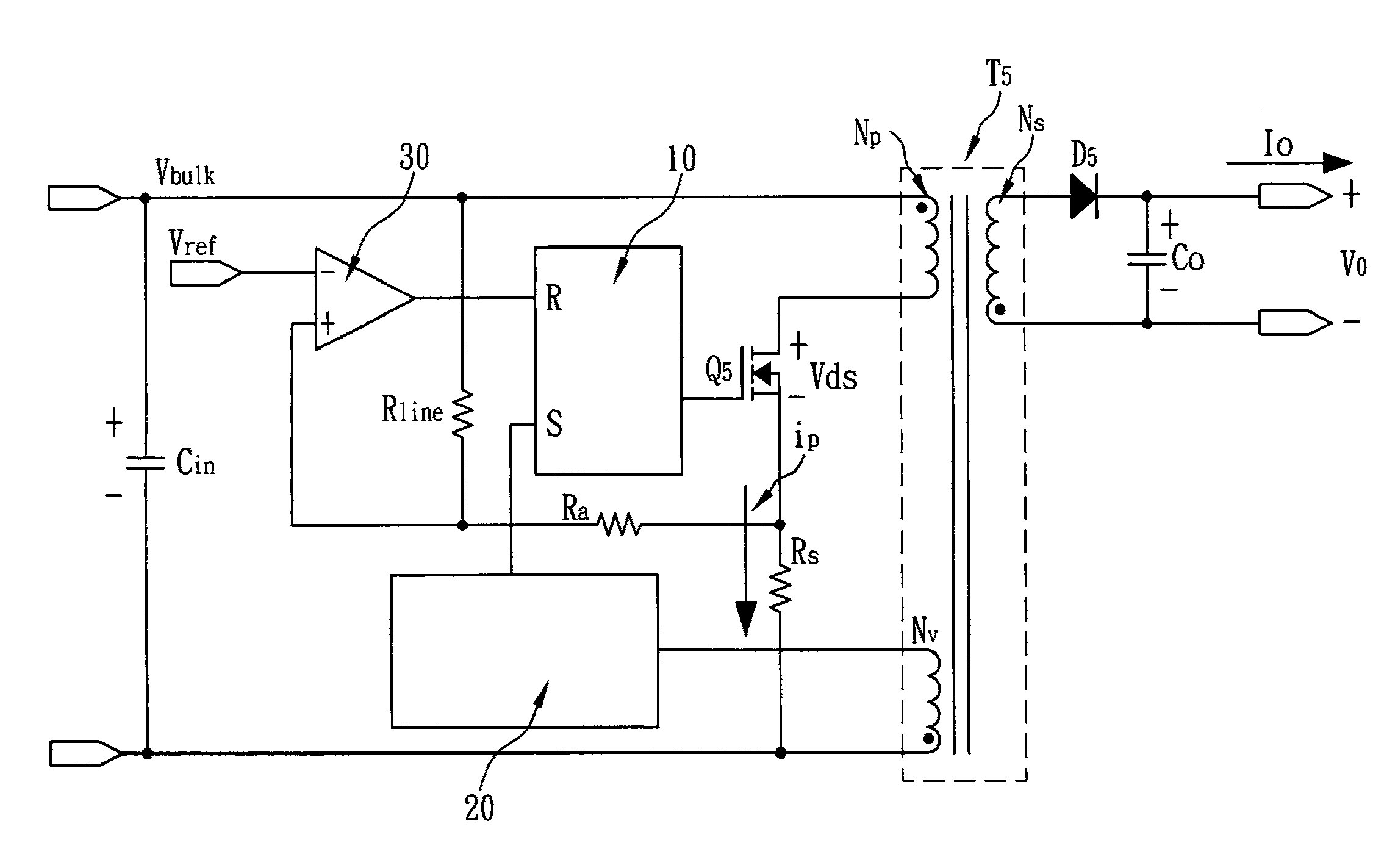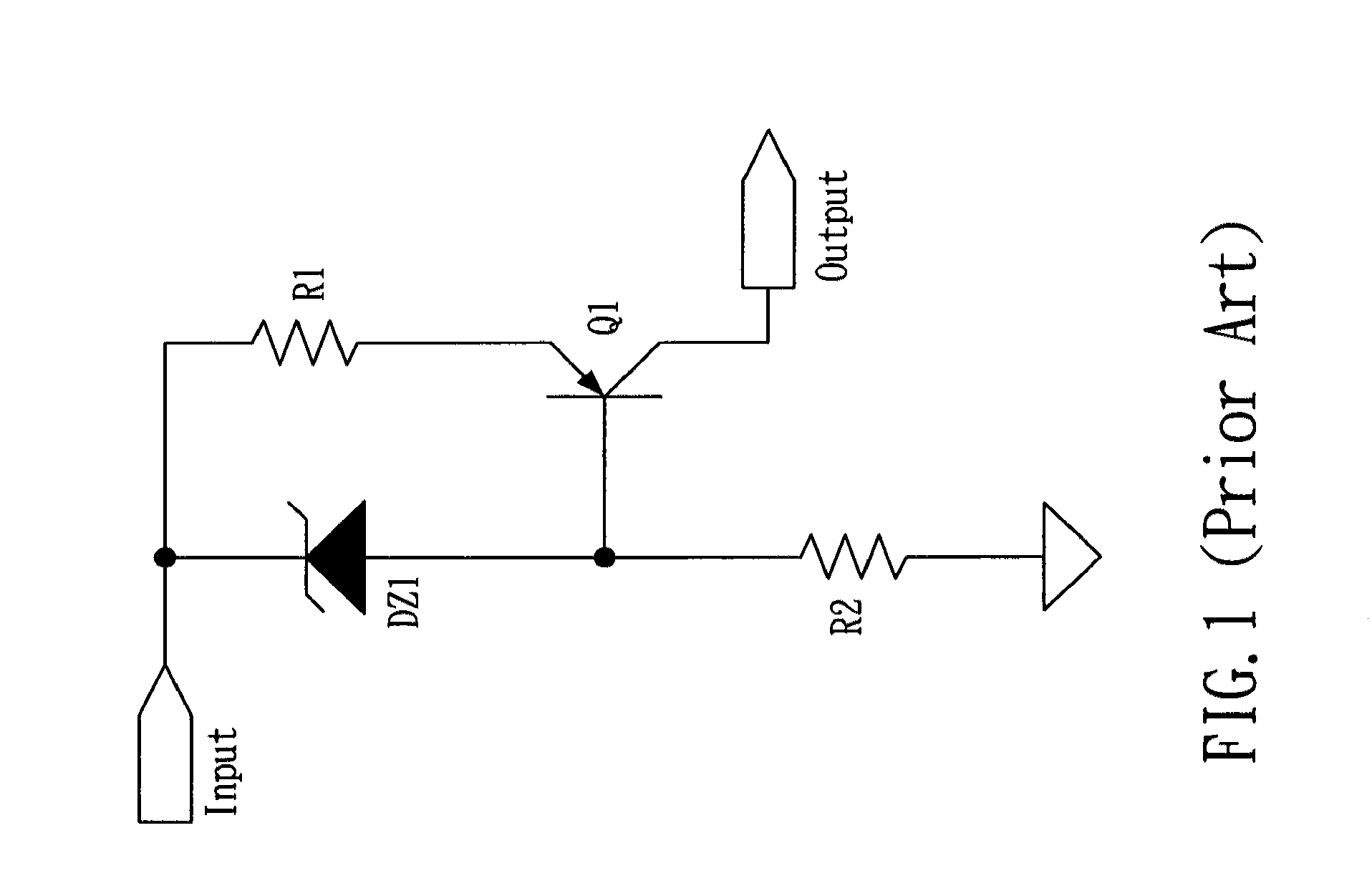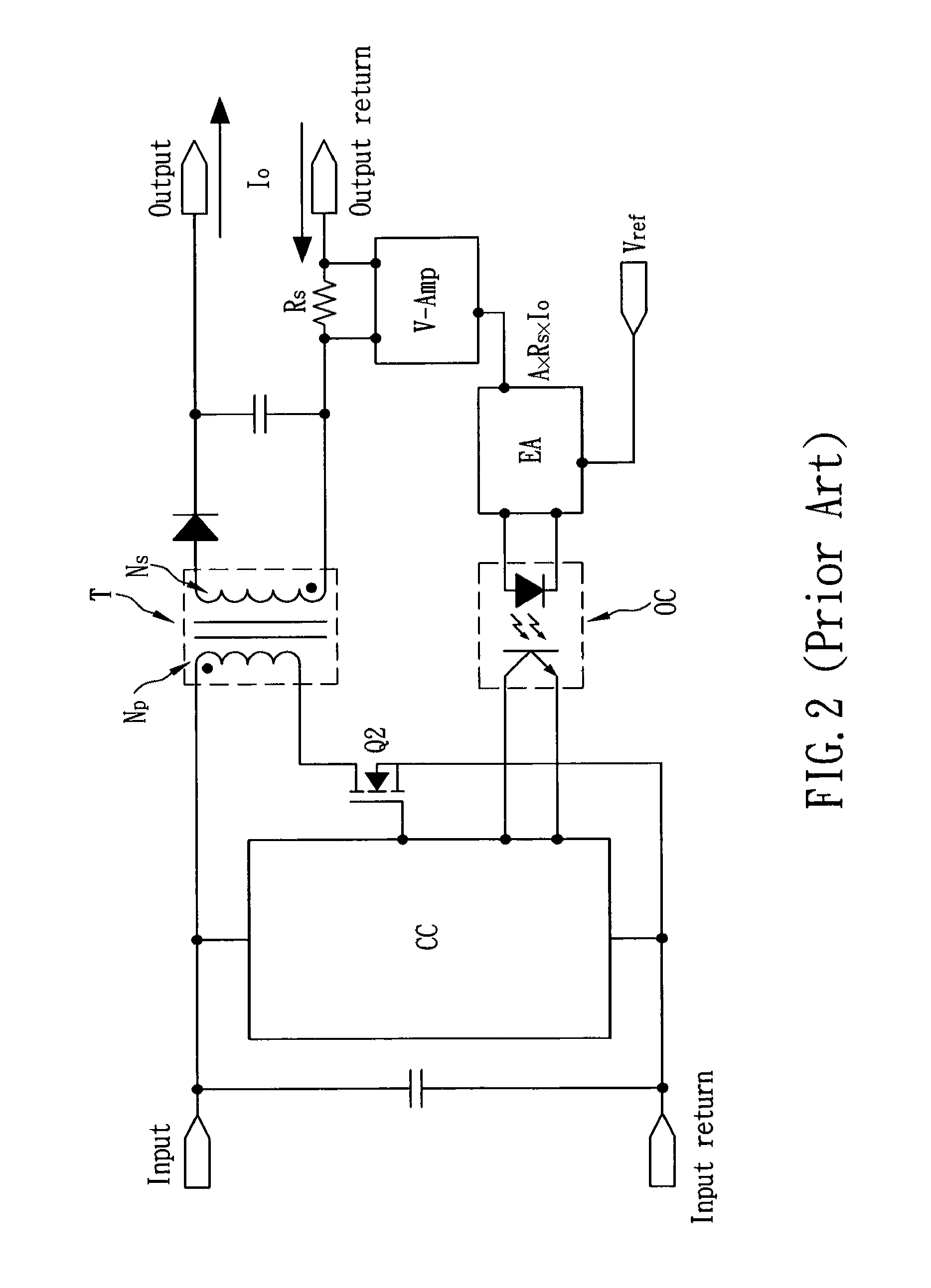Constant-current circuit capable of voltage compensation and zero-voltage switching
a constant-current circuit and zero-voltage switching technology, applied in the field of constant-current circuits, can solve the problems of inability to operate, burn leds, and excessive output current, and achieve the effect of effectively lowering the loss of power semiconductor elements and increasing power conversion efficiency
- Summary
- Abstract
- Description
- Claims
- Application Information
AI Technical Summary
Benefits of technology
Problems solved by technology
Method used
Image
Examples
Embodiment Construction
[0038]The present invention provides a constant-current circuit which is capable of voltage compensation as well as zero-voltage switching and is applicable to an LED-based lighting apparatus as an LED driving circuit whose output current stays constant. Referring to FIG. 9, the constant-current circuit is a single-switch isolated flyback converter operating in current mode and essentially includes a transformer T5, an input-voltage filter capacitor Cin, a linear resistor Rline, an auxiliary resistor Ra, an RS latch 10, a detection circuit 20, a comparator 30, a primary-side power switch Q5, a sensing resistor RS, a secondary-side power diode D5, and an output-voltage filter capacitor Co. The positive and negative electrodes of the input-voltage filter capacitor Cin are connected across the positive and negative ends of an input voltage Vbulk. The transformer T5 is operated in transition mode rather than constant-frequency DCM and includes a primary winding NP, a secondary winding N...
PUM
 Login to View More
Login to View More Abstract
Description
Claims
Application Information
 Login to View More
Login to View More - R&D
- Intellectual Property
- Life Sciences
- Materials
- Tech Scout
- Unparalleled Data Quality
- Higher Quality Content
- 60% Fewer Hallucinations
Browse by: Latest US Patents, China's latest patents, Technical Efficacy Thesaurus, Application Domain, Technology Topic, Popular Technical Reports.
© 2025 PatSnap. All rights reserved.Legal|Privacy policy|Modern Slavery Act Transparency Statement|Sitemap|About US| Contact US: help@patsnap.com



